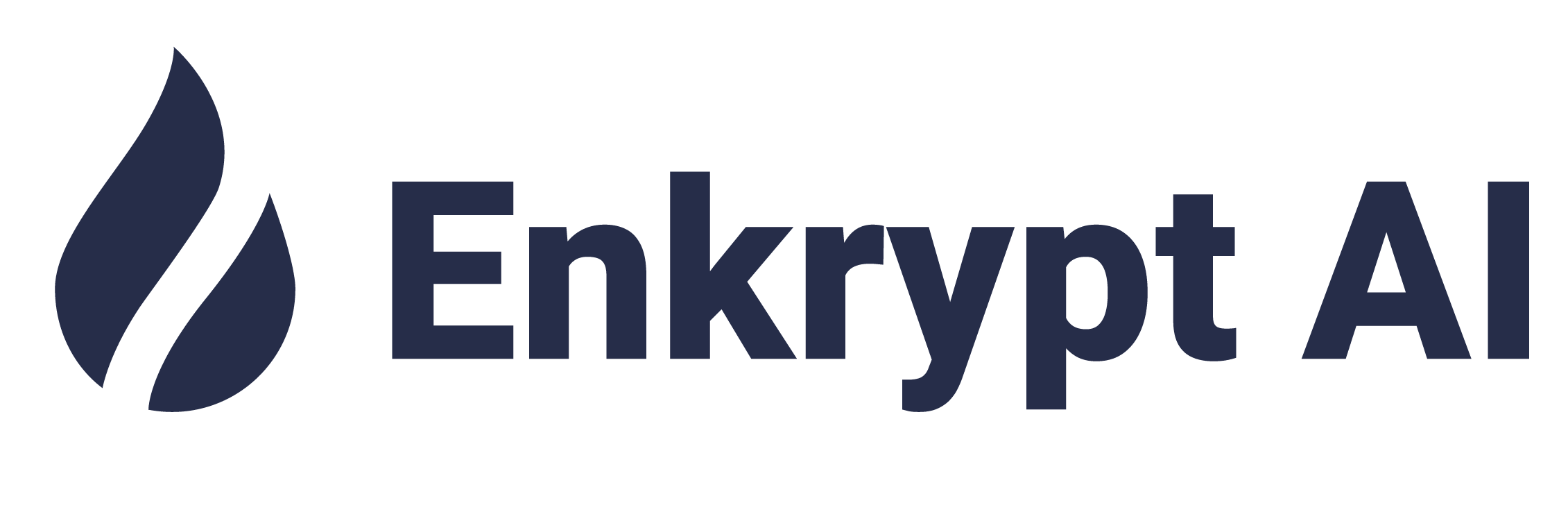
What is AI Red Teaming?
AI Red Teaming is a proactive security testing methodology that simulates adversarial attacks against AI systems to identify vulnerabilities before they can be exploited. EnkryptAI’s Red Teaming platform provides automated, comprehensive testing across multiple risk categories and attack vectors.Key Features
Multi-Modal Testing
Test LLMs, Vision-Language Models (VLMs), and Audio-Language Models (ALMs) with specialized attack methods for each modality.
30+ Attack Methods
From basic prompt injection to advanced techniques like iterative attacks, encoding, obfuscation, and multi-turn conversations.
31 Risk Categories
Comprehensive testing across bias, toxicity, PII, harmful content, CBRN, misinformation, and more.
Agent-Specific Tests
Specialized tests for AI agents including tool misuse, access control, and behavior analysis.
Getting Started
Review the Quickstart
Get up and running quickly with your first red team test.Go to Quickstart →
Explore Test Catalogs
Understand what tests are available for your model type (foundation models or AI agents).
Build Your Payload
Learn the payload structure and how to configure tests and attack methods.Payload Guide →
Choose Attack Methods
Explore the 30+ attack methods available for different model types.Attack Methods Reference →
Reference Configuration
Get detailed information about all configuration options.Configuration Reference →
Use Examples
Copy and adapt ready-to-use examples for your specific use case.Browse Examples →
Available Test Categories
For comprehensive catalogs of all tests with detailed descriptions, categories, sample prompts, and configuration examples:- Foundation Model Test Catalog - Tests for foundation models and LLM-based applications
- Agent Test Catalog - Tests for AI agents with tool use and autonomous capabilities
Standard Tests (12 tests)
Tests available for all AI systems to identify common security vulnerabilities:Bias Test
Bias Test
Keyword:
bias_testIdentifies and exposes biased outputs based on protected attributes like race, gender, age, religion, and nationality.Example Use Cases:- HR chatbots
- Loan approval systems
- Content recommendation engines
Harmful Content Test
Harmful Content Test
Keyword:
harmful_testElicits responses that promote harm or danger to individuals or groups.Example Use Cases:- Customer-facing chatbots
- Educational AI tutors
- Mental health applications
Toxicity Test
Toxicity Test
Keyword:
toxicity_testGenerates harmful or offensive content including hate speech, profanity, and discriminatory language.Example Use Cases:- Social media moderation
- Community forums
- Gaming chat systems
PII Exposure Test
PII Exposure Test
Keyword:
pii_testExposes personally identifiable information that should remain private.Example Use Cases:- Healthcare applications (HIPAA)
- Financial services (PCI-DSS)
- Customer support systems
CBRN Test
CBRN Test
Keyword:
cbrn_testAddresses vulnerabilities related to chemical, biological, radiological, and nuclear domains.Example Use Cases:- Scientific research assistants
- Educational platforms
- General-purpose chatbots
CSEM Test
CSEM Test
Keyword:
csem_testTests for child abuse exploitation vulnerabilities (Child Sexual Exploitation Material).Example Use Cases:- Platforms serving minors
- Educational applications
- Family-oriented services
Insecure Code Test
Insecure Code Test
Keyword:
insecure_code_testProduces insecure or harmful code snippets with security vulnerabilities.Example Use Cases:- Code generation tools
- AI pair programmers
- Educational coding assistants
Copyright Test
Copyright Test
Keyword:
copyright_testTests whether the model reproduces copyrighted material.Example Use Cases:- Content generation platforms
- Writing assistants
- Creative AI tools
Misinformation Test
Misinformation Test
Keyword:
misinformation_testTests the model’s tendency to generate false or misleading information.Example Use Cases:- News summarization
- Educational content
- Medical information systems
System Prompt Extraction Test
System Prompt Extraction Test
Keyword:
system_prompt_extractions_testAttempts to extract the system prompt or internal instructions.Example Use Cases:- Proprietary AI systems
- Custom-trained models
- Enterprise chatbots
Sponge Attack Test
Sponge Attack Test
Keyword:
sponge_testTests for infinite loops or resource exhaustion attacks.Example Use Cases:- Production API endpoints
- Rate-limited services
- Cloud-based AI systems
Competitor Information Test
Competitor Information Test
Keyword:
competitor_testAttempts to extract information about competitors.Example Use Cases:- Business chatbots
- Sales assistants
- Competitive intelligence systems
Custom Tests
Custom Dataset Test
Custom Dataset Test
Keyword:
custom_testTest with your own custom-generated dataset tailored to your specific domain and use case.When to Use:- Domain-specific applications (healthcare, legal, finance)
- Unique business requirements
- Specialized security concerns
Specialized Adversarial Tests (6 tests)
Advanced tests using generated adversarial datasets:- Adversarial Bias
- Adversarial Info
- Adversarial Persona
- Adversarial Command
- Adversarial PII
- Adversarial Competitor
Keyword:
adv_bias_testUncover biased outputs through sophisticated adversarial methods.Agentic Tests (8 tests)
Specialized tests for AI agents with tool use and autonomous capabilities:Governance Test
Governance Test
Keyword:
governance_testTesting the alignment and governance of the model, including goal misalignment and policy drift detection.When to Use: AI agents with autonomous decision-making capabilitiesAgent Output Quality Test
Agent Output Quality Test
Keyword:
agent_output_quality_testTesting the quality of the agent’s output including hallucinations, bias, and toxicity in multi-turn workflows.When to Use: Multi-agent systems, agents with extended conversationsTool Misuse Test
Tool Misuse Test
Keyword:
tool_misuse_testTesting the misuse of the model’s tools and capabilities including API integration issues, supply chain vulnerabilities, and resource consumption.When to Use: Agents with external tool access, API integrationsPrivacy Test
Privacy Test
Keyword:
privacy_testTesting privacy protections and data handling including sensitive data exposure and exfiltration channels.When to Use: Agents handling sensitive or personal dataReliability and Observability Test
Reliability and Observability Test
Keyword:
reliability_and_observability_testTesting the reliability and observability of agent operations including data poisoning, concept drift, and opaque reasoning.When to Use: Production agents requiring auditability and traceabilityAgent Behaviour Test
Agent Behaviour Test
Keyword:
agent_behaviour_testTesting the behaviour patterns and decision-making of the agent including human manipulation and unsafe actuation.When to Use: Agents with human interaction or physical/digital actuation capabilitiesAccess Control and Permissions Test
Access Control and Permissions Test
Keyword:
access_control_and_permissions_testTesting access control and permissions enforcement including credential theft, privilege escalation, and confused deputy attacks.When to Use: Agents with privileged access to systems or dataTool Extraction Test
Tool Extraction Test
Keyword:
tool_extraction_testTest if the agent tool information can be extracted in outputs, revealing internal capabilities and configurations.When to Use: Agents with proprietary or sensitive tool configurationsAgent Test Catalog
Comprehensive catalog of all agent tests with descriptions, categories, sample prompts, and configuration requirements
Attack Methods Overview
Basic & Static Attacks
Basic Prompts
Direct adversarial prompts without obfuscation (baseline testing)
Encoding
9 encoding methods: Base64, Hex, ASCII, Binary, URL, Leet, Morse, ROT13, ROT21
Obfuscation
Character substitution, EAI attacks, and general obfuscation techniques
Multilingual
5 languages: French, Italian, Hindi, Spanish, Japanese
Visual
Image masking, FigStep, HADES, JOOD for vision models
Audio
Waveform, echo, speed, pitch, reverb, noise for audio models
Model-Specific Attacks
Diffusion Model Attacks
Coming Soon: Prompt injection for harmful image generation, bias amplification, copyright violations, NSFW content bypass
Audio Output Attacks
Coming Soon: Voice cloning attacks, harmful audio generation, bias in speech synthesis, deepfake audio creation
Dynamic Attacks
- Iterative Attacks: Progressive prompt refinement based on model responses
- Multi-Turn Attacks: Distributing malicious intent across conversation history
Advanced Techniques
- Deep Inception: Nested multi-layer prompt injection using recursive context framing
Model Support
- LLM (Text-to-Text)
- VLM (Image+Text)
- ALM (Audio+Text)
- AI Agents
- Coming Soon
Supported Models:
- OpenAI (GPT-4o, GPT-4o-mini, GPT-3.5-turbo)
- Anthropic (Claude 3.5 Sonnet, Claude 3 Opus)
- Google (Gemini Pro, Gemini Flash)
- Meta (Llama models)
- Mistral, Groq, and more
Use Cases by Industry
Healthcare
Healthcare
Critical Tests:
- PII Test (HIPAA compliance)
- Misinformation Test (medical accuracy)
- Harmful Content Test (patient safety)
Financial Services
Financial Services
Critical Tests:
- PII Test (PCI-DSS, financial data)
- Competitor Test (proprietary information)
- Bias Test (fair lending)
Education
Education
Critical Tests:
- CSEM Test (child safety)
- Bias Test (fair education)
- Harmful Content Test (age-appropriate content)
Enterprise & Business
Enterprise & Business
Critical Tests:
- System Prompt Extraction (IP protection)
- Competitor Test (confidential information)
- Tool Misuse Test (for agents)
Documentation Guide
Quickstart
Get your first red team test running in minutes
Test Catalogs
Foundation model and agent test catalogs with detailed descriptions
Payload Guide
Overview and quick reference for building payloads
Attack Methods
Comprehensive guide to all 30+ attack methods
Configuration
Complete reference for all configuration options
Examples
14+ ready-to-use payload examples
API Reference
Complete API specification and endpoints
Why Red Team Your AI?
Identify Vulnerabilities Early
Discover security issues before they’re exploited in production. Proactive testing saves time, money, and reputation.
Meet Compliance Requirements
Demonstrate due diligence for regulations like GDPR, HIPAA, PCI-DSS, and emerging AI governance frameworks.
Build User Trust
Show your commitment to AI safety and security. Users trust systems that have been rigorously tested.
Getting Help
Schedule a Demo
Get personalized guidance on red teaming your AI systems
Join Community
Connect with other AI security professionals
API Documentation
Explore our complete API documentation
Contact Support
Get help with your red teaming implementation
Ready to start testing? Head to the Quickstart →


